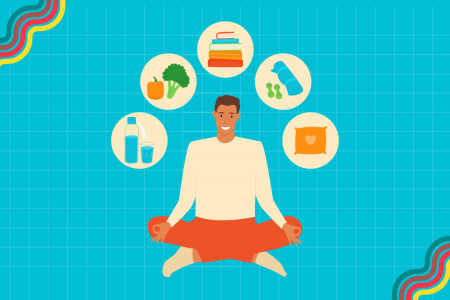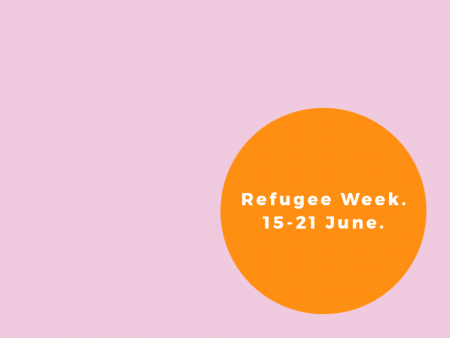
Health and forced migration: Making the links
Our experiences shape our mental and physical health. This might not be surprising, but the research into the links between our experiences and our health are not always a priority.
At ACH, we want to raise awareness of these links, to make sure refugees and forced migrants have access to person-centered healthcare.
Megan, one of our wonderful Support Workers, takes a look at the health risks for refugees and migrants, and the reasons behind the issues. Megan has a masters degree in Public Health and on-the-ground experience delivering support and guidance to refugees and migrants in the UK.
Read more to find out some of the links between experience and health…
Making the links
There is a huge gap in the research when it comes to investigating the link between trauma and health conditions, a pressing issue for refugees. However, there are many reports and conversations that suggest refugees and forced migrants are suffering a number of health issues which the evidence shows have strong links to the trauma they have experienced in their home countries, in refugee camps or in the journey to their final destination.
Research into the links between living through an ordeal and particular medical conditions is vitally important. We need to be aware of that fact that refugees are vulnerable to particular medical conditions as a result of the ordeals they have been through and deserve specialised health services not only for mental health, but also for their physical health.
The link between the body and the mind
When we consider the health of refugees, often the focus is on mental health, and rightfully so, considering refugees’ exposure to violence and war, isolation and culture shock, and the potential poverty and stress when navigating a completely new environment.
However, the link between the mind and the body in the receiving and healing of trauma has received more coverage in recent years. Books such as ‘The Body Keeps the Score’ by Bessel van der Kolk look at a body of evidence and experience exploring how the memory of trauma is encoded in your body and to manage this, all parts of the mind and body must be treated.
Without trauma treatment, people can struggle to integrate new experiences and can become hyper-vigilant or dissociate. The emotions caused by the trauma are somatised by the body into physical autoimmune conditions, and people can be more at risk of addictive behaviours.
Of course, this is a multifaceted issue, with genetic and other biological factors at play, hence the real need for further research for targeted prevention and treatment.
Trauma and Autoimmune Conditions
With Autoimmune conditions, the body’s immune system attacks its own tissue. These include a broad range of conditions, such as major stomach issues (Colitis, Crohn’s disease), thyroid problems (Grave’s Disease) and rheumatoid arthritis, amongst others.
There is strong evidence linking stress and trauma to these diseases, in particular as a result of post-traumatic stress disorder (PTSD), commonly diagnosed in refugees. When the body experiences long term stress, it causes physical changes in how the different systems in the body interact with each other, by releasing too much of the stress hormone (cortisol). In time, the body becomes resistant to cortisol or produces less, which leads to inflammation and impairs immunity. So then, the body can start to attack itself.
Most autoimmune conditions are treatable, but symptoms worsen without a diagnosis and can be more difficult to treat without early intervention. This leaves the patients in a vicious cycle of stress and increasing suffering, perpetuating the issue.
How can refugees be supported?
It is vital that people working with refugees provide trauma informed care (with interpreters if necessary).
Support workers should focus on promoting personal welfare, links with community, education and training, and holistic activities that promote wellbeing, such as nature walks, support groups or meditation. Support workers can also reduce the stress of the immigration and housing process for the refugee.
Medical professionals should provide person-centred treatment for refugees and undertake specialised training in order to identify risk factors early. This includes autoimmune conditions, but also other acute health issues caused by the impact of the journey and the inability to access appropriate healthcare. Conditions such as malnutrition from camps, foot pain from walking long distances and frostbite from exposure to cold can go untreated during the journey and asylum process.
What needs to change?
Society at large needs to become aware of the severity and long term health effects of trauma and stress on the mind and body. It is not necessary to screen refugees for diseases, as this could create more stress and discrimination, but health care providers should be sensitive to the context of individual refugee experiences when considering risk factors. A societal understanding of these issues would benefit the health of the wider population as well as refugees.
Our current immigration system is not trauma-informed. The bureaucracy of applying for paperwork, new cultural ideas as part of this (the focus on dates of birth and mother’s maiden names baffle some other cultures; many refugees do not know their exact date of birth), long waiting times for immigration statuses and countlessly repeating their stories and their losses to various professionals in order to validate their refugee claim, is not treating refugees with the compassion they deserve and is causing further anxiety.
We need to listen to those using the system and make the process as compassionate and culturally informed as possible, ensuring refugees get the access to immigration, healthcare and wellbeing they deserve.
Sources:
10 things to know about the health of refugees and migrants (who.int)
Dalgaard NT, Todd BK, Daniel SI, Montgomery E. The transmission of trauma in refugee families: associations between intra-family trauma communication style, children's attachment security and psychosocial adjustment. Attach Hum Dev. 2016;18(1):69-89. doi: 10.1080/14616734.2015.1113305. Epub 2015 Nov 25. PMID: 26608277.
Sangalang CC, Vang C. Intergenerational Trauma in Refugee Families: A Systematic Review. J Immigr
Minor Health. 2017;19(3):745-754. doi:10.1007/s10903-016-0499-7
van der Kolk, B. (2014) The Body Keeps the Score: Brain, Mind, and Body in the Healing of Trauma London: Penguin
WHO/Europe | Migration and health - Migration and health: key issues


